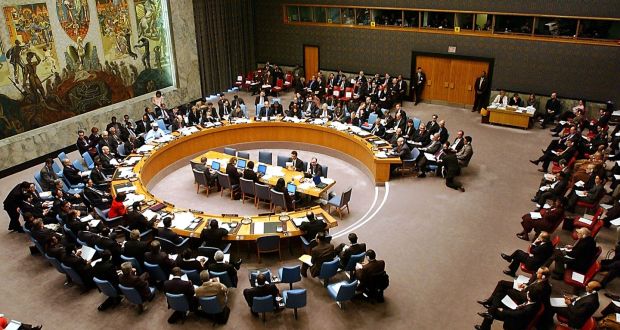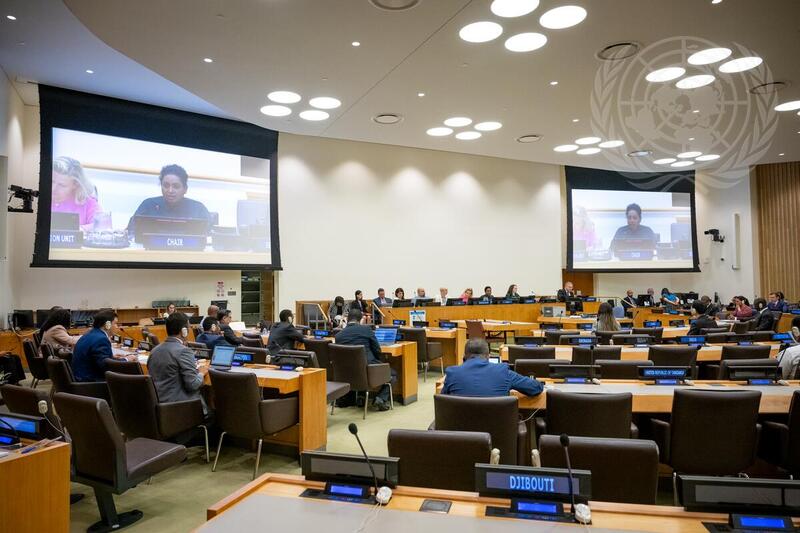The UN Security Council held, in New York, closed-door consultations on the Moroccan Sahara issue. These regular consultations are provided for by Council Resolution 2654 adopted last October 27.
According to well-informed sources at the UN headquarters, the members of the Security Council were briefed on Wednesday by the UN Secretary-General’s Personal Envoy for the Sahara, Staffan de Mistura, as well as by the Secretary-General’s Special Representative and head of MINURSO, Alexander Ivanko.
According to the same sources, a large number of the Security Council members expressed support to the Morocco-proposed autonomy initiative, considering the initiative as a serious, credible and pragmatic solution to put a definitive end to the regional dispute over the Moroccan Sahara. In this regard, it should be recalled that resolution 2654 and all those that preceded it since 2007 have established the pre-eminence of the Moroccan autonomy initiative.
Similarly, the members of the Security Council have unanimously reaffirmed their support for the exclusively UN-led political process which aims to achieve a political, realistic, pragmatic, sustainable and compromise solution to the Moroccan Sahara issue.
They all reiterated their support for de Mistura’s efforts to relaunch the UN-led political process, enshrined in all Security Council resolutions since 2007. In this context, the resumption of the roundtables, with the participation of Morocco, Algeria and Mauritania, was highlighted. The roundtable process was reaffirmed in resolution 2654, and in those that preceded it since 2018, as the only framework for the political process.
The members of the Council also expressed their appreciation for the organization by the Personal Envoy, at the end of last March, at the UN headquarters in New York, of informal bilateral consultations, particularly with Morocco, Algeria and Mauritania, thus confirming the status of Algeria as the main party to this regional dispute that it created and has maintained for half a century, in disregard of the interests and the common destiny of the peoples of the five member states of the Arab Maghreb Union.
It should also be recalled that the role of Algeria has been enshrined in all Security Council resolutions since 2018, including 2654, which calls on it to remain committed to the roundtable process in a spirit of realism and compromise in order to make it succeed.
Unfortunately, Algeria continues its violation of Security Council resolutions and therefore international law by refusing to take part in the roundtables, while two of its former foreign ministers, namely Lamsahel and Lamamra had taken part in them in September 2018 and March 2019 respectively.
Several well-informed sources at the UN headquarters indicated that other members of the Council welcomed the stability and prosperity prevailing in the Moroccan Sahara, and highlighted the all-round development experienced by the southern provinces of the Kingdom thanks to the new development model for these provinces, which is a stinging denial of the false allegations of Algeria and its puppet the polisario about the situation in the Moroccan Sahara and the existence of a so-called conflict.
Similarly, the opening of consulates in the cities of Laayoune and Dakhla was highlighted during these consultations as well as the growing recognition of the Moroccanness of the Sahara by the international community.
In addition, Morocco’s commitment to the ceasefire and its fruitful cooperation with MINURSO to facilitate the fulfilment of its monitoring mandate were highlighted during these consultations.
The polisario’s renunciation, at the behest of Algeria, of the ceasefire was a matter of great concern to Council members, who urged the separatist group to respect the ceasefire.
The polisario’s obstructions to MINURSO’s ceasefire supervision activities, including its violations of the military agreements and freedom of movement and blocking of supply convoys, were denounced by Council members who demanded an end to these reprehensible violations.
The polisario’s renunciation of the ceasefire and its unacceptable violations of MINURSO were exposed by the UN Secretary General in his report to the Security Council last October.



